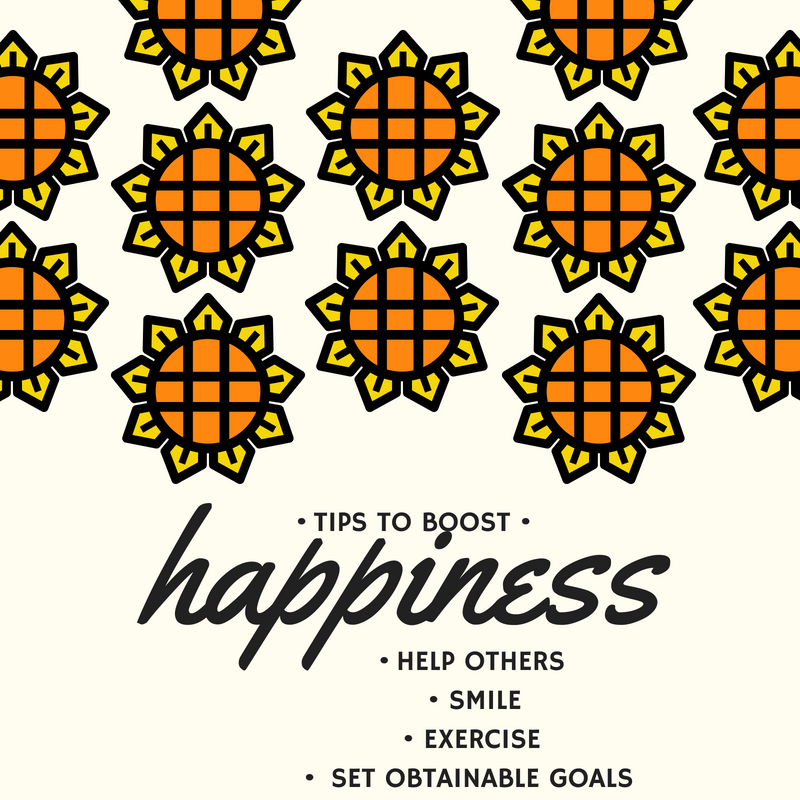
Tips to Boost Happiness that Will Contribute to Good Mental Health
In our busy lives, it can be hard for us to achieve happiness in our day-to-day lives while maintaining a successful career, our relationships, or family. However, there are several small things that people can do everyday in order to boost their happiness. A lot of the tips that you’ll find to help boost happiness are associated with four neurotransmitters that are known to induce feelings of happiness: endorphins, oxytocin, serotonin, and dopamine. Here are some tips that have been shown to help boost our moods and how they work through our neurotransmitter system.
1. Helping Others
We are always told that sharing is caring, but studies have shown that giving to others, or volunteering for a cause that you believe in, really does help us in terms of our self-worth, sense of belonging, and sense of purpose. The act of helping others plays on the reward systems and
releases oxytocin, often known as the “hugging/cuddle hormone.” Oxytocin, in turn, boosts the levels of serotonin and dopamine, more neurotransmitters that are associated with happiness.
2. Smiling
When we aren’t feeling our best or happiest, we can alleviate those symptoms by holding a smile, which fools our brain into believing that we are happy. A common way to simulate this reaction is by holding a pencil between your teeth to copy the motion of smiling. Smiling releases more than one neurotransmitter associated with happiness including dopamine, serotonin, and endorphins.
3. Exercising
The benefits of exercise are always mentioned when it comes to physical health; exercise itself can also help in terms of mental health and increasing happiness. Studies show that just exercising 20 minutes can boost our mood for up to 12 hours afterwards, but why? Exercise releases endorphins that are responsible for our positive boost in mood; this effect has also been dubbed the “runner’s high”.
4. Give yourself obtainable goals.
Setting any kind of goal, whether it is for your career, relationships, or a personal goal, can help us create a better vision of our future. Setting and completing goals triggers the release of dopamine which plays a part in the positive reward system of our brain. This is why to-do lists can be helpful for people to manage and maintain their busy schedules.
If you are struggling with your happiness or any part of your mental health, or you know someone who might be struggling, please feel free to contact the professional team at Lifeline Connections for help! Getting yourself help, whether it is through self-help or by reaching out to professionals is an important part of recognizing that you are struggling; it is also a good step forward in getting the help you need. You can visit Lifelineconnections.org or call 360.397.8246 for more information.
